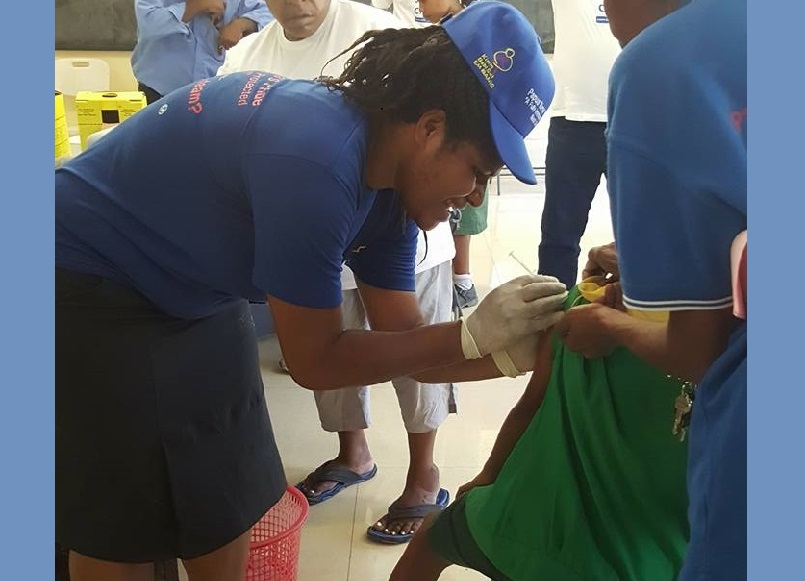
Protecting young girls from the Human papilloma virus, the virus that causes cervical cancer is the next step taken by the health department to prevent girls contacting cervical cancer in the future.
PNG Against Cervical Cancer team, led by Gynaecologist Dr Lutty Amos from the Well Woman Centre in Konedobu have been going around schools in NCD vaccinating girls aged between 9 and 14 years.
The program commenced on May 1 following awareness workshops carried out in the schools last month. It ends at the end of May. This is only the first dose of the HPV vaccination.
Girls who were vaccinated so far had consent forms signed by their parents and guardians.
Schools in the Moresby South electorate; Pari, Butuka, Kwikila Primary schools and ICA schools were the first schools visited by the team.
Girls attending schools in the North-East electorate have also been vaccinated. The team is now vaccinating schools in the North-West area.
Dr Amos said the team will be at Boreboa and St Johns Primary schools today.
“Expecting to vaccinate the largest number of girls in Boreboa today,” She said.
The team will be visiting Waigani and Morata Primary schools next week Monday. Tokarara, June Valley and Ororo Primary schools will be visited on Tuesday while Carr Memorial is scheduled for Wednesday, May 24.
Ekivaki on May 25, Tanana and Ted Diro Primary schools will be on May 26. Girls in Hagara, Baruni and St Michael Primary schools will be vaccinated on May 29.
“Parents who change their minds or consent late will have to contact the office on 3239662 and register your child’s name/age , school and your contact details. We will either revisit your school or organize for you to take your daughters to the nearest mobile site to be vaccinated,” Dr Amos added.
Human papillomaviruses (HPVs) are a group of more than 200 related viruses. More than 40 HPV types can be easily spread through direct sexual contact, from the skin and mucous membranes of infected people to the skin and mucous membranes of their partners. They can be spread by vaginal, anal, and oral sex.
Virtually all cases of cervical cancer are caused by HPV, and just two HPV types, 16 and 18, are responsible for about 70% of all cases.
HPV vaccination can reduce the risk of infection by the HPV types targeted by the vaccine.
Most high-risk HPV infections occur without any symptoms, go away within one to two years, and do not cause cancer.
Some HPV infections, however, can persist for many years. Persistent infections with high-risk HPV types can lead to cell changes that, if untreated, may progress to cancer.
(Picture credit: PNG Against Cervical Cancer page. A girl from Pari Primary school being vaccinated. )
